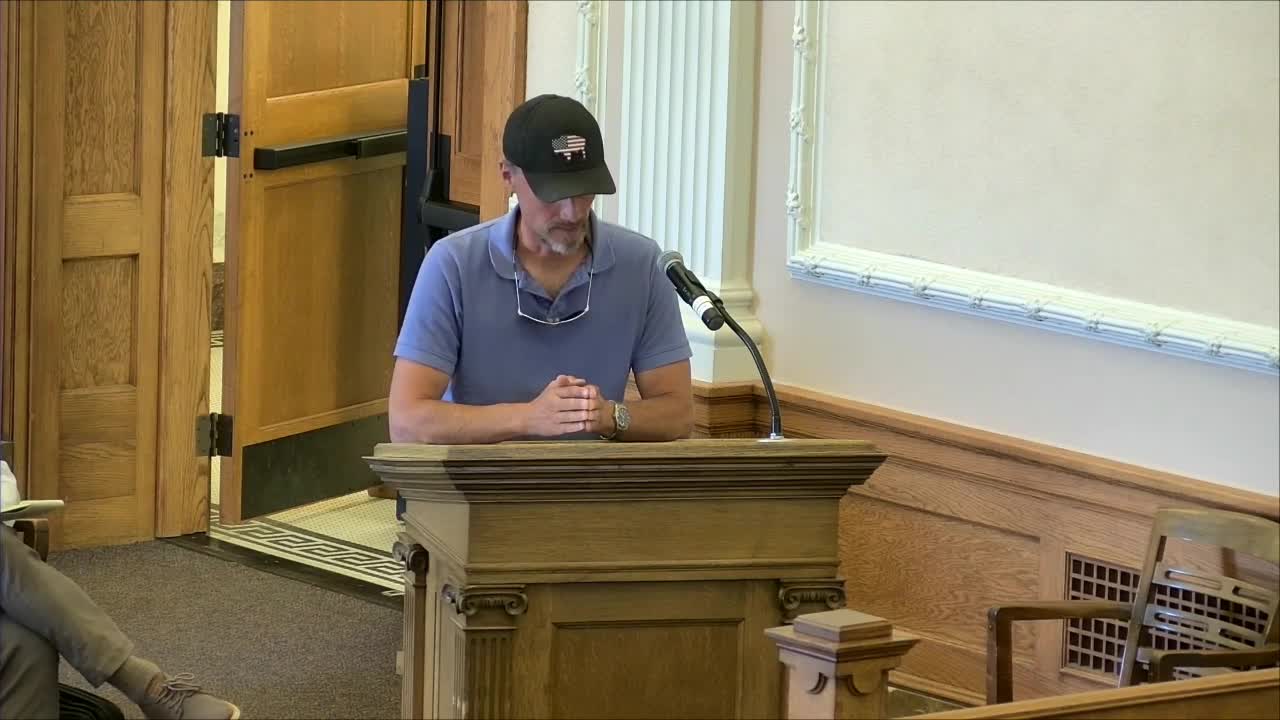Concerns mount over fire risks from controversial energy project
July 25, 2024 | Laramie County, Wyoming

This article was created by AI summarizing key points discussed. AI makes mistakes, so for full details and context, please refer to the video of the full meeting. Please report any errors so we can fix them. Report an error »

In a recent government meeting, significant concerns were raised regarding a proposed solar and battery backup project by Enbridge, particularly its potential fire hazards and environmental implications. Local officials highlighted that high wind days could exacerbate fire risks, with flames potentially reaching Cheyenne within an hour and threatening nearby communities and agricultural areas within a few hours. The nature of battery fires, which cannot be extinguished with water and are prone to rekindling, was underscored as a critical safety issue.
Critics pointed out Enbridge's reluctance to fund necessary firefighting resources, questioning the company's commitment to safety. The proposal to purchase a single brush fire truck was dismissed as inadequate. Additionally, the lack of a plan to address hail damage to solar panels, especially in the hail-prone region known as Hale Alley, raised alarms about the disposal of toxic materials, as Wyoming lacks facilities for recycling such waste.
The economic ramifications for local homeowners were also discussed, with fears that property values would decline and insurance costs would rise due to the increased risk of fire and property damage. The anticipated job creation from the project was deemed minimal compared to the risks posed to residents and businesses.
Concerns extended to the energy demands of Project Cosmo, a data center that would require continuous electricity, highlighting the inadequacy of solar energy to meet such needs reliably. The meeting also touched on the broader implications of water usage, with local leaders emphasizing that water is a precious resource in Wyoming, essential for agriculture and community survival.
Critics expressed frustration over the perception that local government is approving projects without adequately considering public concerns, fearing that Wyoming could lose its unique identity and quality of life, similar to changes seen in Colorado. They urged officials to reject the project, citing a recent successful opposition in Sublette County as a precedent for prioritizing community interests over economic incentives.
Critics pointed out Enbridge's reluctance to fund necessary firefighting resources, questioning the company's commitment to safety. The proposal to purchase a single brush fire truck was dismissed as inadequate. Additionally, the lack of a plan to address hail damage to solar panels, especially in the hail-prone region known as Hale Alley, raised alarms about the disposal of toxic materials, as Wyoming lacks facilities for recycling such waste.
The economic ramifications for local homeowners were also discussed, with fears that property values would decline and insurance costs would rise due to the increased risk of fire and property damage. The anticipated job creation from the project was deemed minimal compared to the risks posed to residents and businesses.
Concerns extended to the energy demands of Project Cosmo, a data center that would require continuous electricity, highlighting the inadequacy of solar energy to meet such needs reliably. The meeting also touched on the broader implications of water usage, with local leaders emphasizing that water is a precious resource in Wyoming, essential for agriculture and community survival.
Critics expressed frustration over the perception that local government is approving projects without adequately considering public concerns, fearing that Wyoming could lose its unique identity and quality of life, similar to changes seen in Colorado. They urged officials to reject the project, citing a recent successful opposition in Sublette County as a precedent for prioritizing community interests over economic incentives.
View full meeting
This article is based on a recent meeting—watch the full video and explore the complete transcript for deeper insights into the discussion.
View full meeting